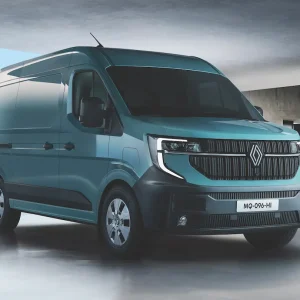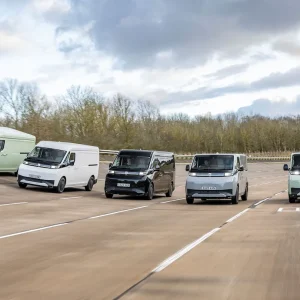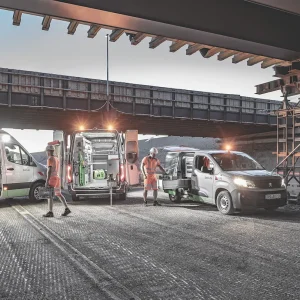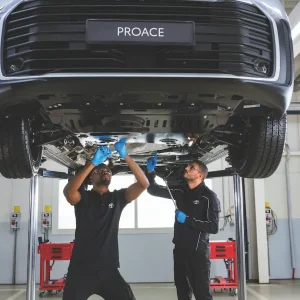The full-size version of Ford’s Transit will finally arrive this spring. The two-tonne van is not as good-looking as its smaller sibling, the Transit Custom, but its big, butch look should stand it in good stead when it debuts in the uS this year to replace the current e-series.
Ford revealed prices for its new Transit in the run-up to Christmas – excluding VaT they range from £20,795 for the entry-level base model to £26,895 for the Trend 350 L2 H2 van.
The green flag-bearer of the line-up, the Transit econetic, has official consumption of 44.1mpg and CO2 of 169g/km when fitted with a fixed 62mph speed limiter, a 6% improvement over the current model.
Ford says load volume is up by 11% across the range. The L2 van’s volume capacity has risen from 10.3m3 to 11.2m3 and it has a payload capacity of 1453kg. The largest Jumbo van accommodates 15.1m3 of cargo and has a payload of 1113kg.
The Transit is powered by Ford’s 2.2-litre diesel engine with outputs of 100, 125 and 155hp wedded to six-speed manual transmission. It comes with a choice of front-wheel drive, rear- wheel drive and all-wheel drive derivatives and is available in three lengths and two roof heights.
In the third quarter of last year, Mercedes announced it was pulling the plug on its large van collaboration with VW when the current deal comes to an end in 2016. Merc currently builds the
VW Crafter alongside its Sprinter at its plants in Dusseldorf and Ludwigsfelde, but plans to use the facilities solely for its own vehicles as it moves to increase volumes.
Mercedes’ LCV boss Volker Mornhinweg says: “With the next Sprinter, which is currently in development, we will be dependent upon the production facilities we have currently made available to Volkswagen.”
Mercedes launched a facelifted Sprinter in September in the UK,
introducing a raft of new safety features to the model that won the What Van? Large Van of the year award 2014. Mercedes has made around 280,000 Crafter vans in Germany for VW since the model was launched in 2006.
With regard to a Crafter replacement, Dr eckhard Scholz, head of CVs at VW, says: “We
are working hard to develop a successor.” In the meantime, VW has confirmed the Crafter will be available with a euro6-compliant engine from this month. The model, which will employ ammonia-based adblue, exhaust gas recirculation and a diesel particulate filter to reduce pollutants, will come with an uplift of about £1000.
Both Iveco and Citroen added fuel-saving stop/start models to their respective Daily and relay line-ups last year. The rear-wheel drive Dailys are powered by a 2.3-litre diesel engine with outputs of 106, 126 and 146hp. Iveco is only offering stop/start with six-speed manual transmission, and expects the option to be popular with urban operators and those running short routes that can maximise the system’s fuel- saving potential. Official combined fuel economy on the 126hp version is 35mpg.
Citroen claims its stop/start relay, powered by a 2.2-litre 130hp diesel engine, delivers fuel economy of 39mpg.
Peugeot is pinning its 2014 growth plans on its expectation that the boxer heavy van will become better established in the marketplace. Former LCV boss Phil robson says Peugeot has overcome the boxer’s early quality problems and has gained a strong footing for the model in the conversion market. He forecasts 20% growth for the boxer in 2014.
Vauxhall is also placing a strong emphasis on the conversion sector and has recently introduced a 4WD Movano. a parcel van conversion model is next in the pipeline. Finally, the big Vauxhall’s sister model, the renault Master, is due for a facelift later this year.





